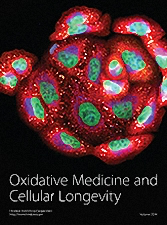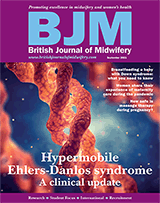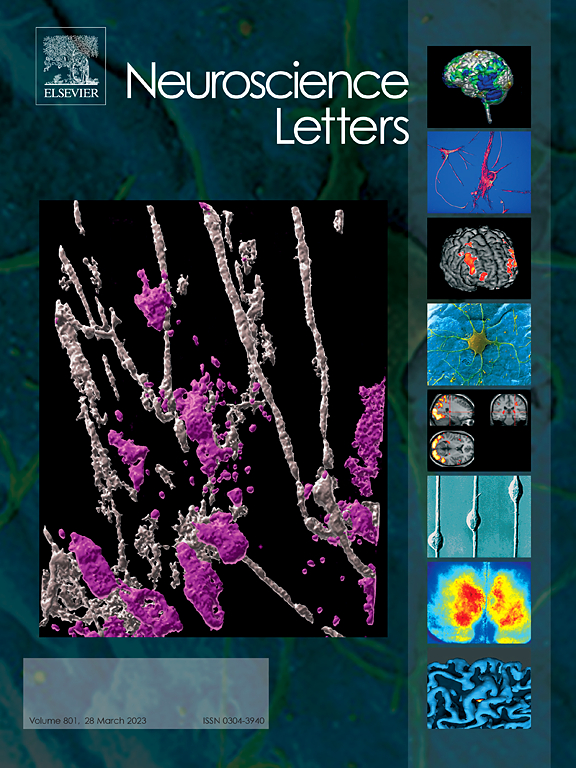Fluoxetine
How to submit an article:
- Registered users can submit any published journal article that has a unique DOI (Digital Object Identifier) name or link to Research Hub.
- For example, you can paste the full DOI link:
https://doi.org/10.1109/5.771073or just the DOI name:10.1109/5.771073into the field above and click submit. - The person who is first to submit a valid article to Research Hub will forever be credited for it, and every article submission earns you +6 Research Points.
Related Topics
Published research studies are articles that present the findings of original research that has undergone a peer-review process and has been made publicly available in scholarly journals, books or other media.

L. Cucurbita pepo Alleviates Chronic Unpredictable Mild Stress via Modulation of Apoptosis, Neurogenesis, and Gliosis in Rat Hippocampus
2021 Jul 10 Oxidative Medicine and Cellular Longevity Ayuob N, Shaker SA, Hawuit E, Al-Abbas N, Shaer NA, Al Jaouni S, et al.
Animal Study Stress Fluoxetine Chronic Stress Pumpkin SeedPumpkin extract exhibits potential antidepressant effects similar to fluoxetine and ameliorates biochemical and structural changes in rat brains resulting from chronic stress.

Acupuncture versus antidepressants in the management of postpartum depression: A systematic review
2018 Oct 3 British Journal of Midwifery Akari Komori, David Arthur, Samara Radford, Hsiewe Ying Tan, Li Zheng, Mira An, et al.
Systematic Review PregnancyAcupuncture in postpartum depression was at least as effective as fluoxetine hydrochloride, supporting the notion that acupuncture may be a safe and effective option.

Potential antiinflammatory effects of acupuncture in a chronic stress model of depression in rats
2016 Apr Neuroscience Letters Lu J, Shao RH, Hu L, Tu Y, Guo JY
Acupuncture treatment, along with fluoxetine, reversed CUMS-induced depressive-like behavior in rats, and this effect was associated with a significant decrease in the levels of proinflammatory cytokines (IL-1β, IL-6, TNF-α) in the hippocampus, prefrontal cortex, and serum.
Experimental Study Animal Study Acupuncture Chronic StressResearch insights are moderated by the Research Hub team and offer an at-a-glance overview of interesting research findings.

2021 Oxidative Medicine and Cellular Longevity
Pumpkin extract exhibits potential antidepressant effects similar to fluoxetine and ameliorates biochemical and structural changes in rat brains resulting from chronic stress.
Animal Study Chronic Stress Pumpkin Seed Stress
L. Cucurbita pepo Alleviates Chronic Unpredictable Mild Stress via Modulation of Apoptosis, Neurogenesis, and Gliosis in Rat Hippocampus
Ayuob N, Shaker SA, Hawuit E, Al-Abbas N, Shaer NA, Al Jaouni S, et al.

2018 British Journal of Midwifery
Acupuncture in postpartum depression was at least as effective as fluoxetine hydrochloride, supporting the notion that acupuncture may be a safe and effective option.
Systematic Review Pregnancy
Acupuncture versus antidepressants in the management of postpartum depression: A systematic review
Akari Komori, David Arthur, Samara Radford, Hsiewe Ying Tan, Li Zheng, Mira An, et al.
Review Articles
Review articles summarise and critically evaluate the current state of research on a specific topic or field by synthesising multiple primary research studies.
Clinical Trials
Clinical trials are research studies that involve people and are conducted to evaluate the safety and efficacy of new treatments or interventions, such as drugs, medical devices, or behavioural therapies.
Study Protocols
Published study protocols are detailed plans that outline the objectives, methodology, statistical analyses, and organisation of a research study that have been made publicly available for others to review and use as a reference.
Presentation Slides

Animal Study
Pumpkin extract exhibits potential antidepressant effects similar to fluoxetine and ameliorates biochemical and structural changes in rat brains resulting from chronic stress.
Ayuob N, Shaker SA, Hawuit E, Al-Abbas N, Shaer NA, Al Jaouni S, Mahdi MR

Systematic Review
Acupuncture in postpartum depression was at least as effective as fluoxetine hydrochloride, supporting the notion that acupuncture may be a safe and effective option.
Akari Komori, David Arthur, Samara Radford, Hsiewe Ying Tan, Li Zheng, Mira An, Rika Umeda, and Zhen Zheng
Executive Summary
Write an executive summary in the form of a blog article on the topic of "Research into Chinese medicine treatment for Fluoxetine" summarising the research below and using language that can be easily understood by patients and avoiding medical jargon using a professional and caring tone of voice.
Write an executive summary in the form of a blog article on the topic of "Researched Chinese medicine treatments for Fluoxetine" summarising the research below in an objective and easy to understand way, and using language that can be easily understood by patients. Group the article into Chinese medicine treatments first, followed by nutrition and other treatments. Avoid using medical jargon and use a professional and caring tone of voice.
Write me a concise but easy to understand executive summary on the topic of "Chinese medicine treatments for Fluoxetine" based on the following research that I will give you. Your summary should be 2 paragraphs long in Australian English spelling and include references to the studies.
A Animal Study published in 2021 in the journal Oxidative Medicine and Cellular Longevity found that Pumpkin extract exhibits potential antidepressant effects similar to fluoxetine and ameliorates biochemical and structural changes in rat brains resulting from chronic stress. The researchers used forty male albino rats, split into four different groups: a negative control group, a chronic unpredictable mild stress (CUMS) group, a fluoxetine-treated group, and a pumpkin-treated group. These rats were exposed to CUMS for 28 days, with the treatments applied during the last 14 days of this exposure period. After these 28 days, the scientists evaluated the behavioral, biochemical, and histopathological alterations in these rats. The application of pumpkin extract significantly reduced markers of stress and inflammation, while increasing antioxidant levels. Additionally, the extract helped reduce structural damage in the hippocampal region of the brain caused by exposure to CUMS. These effects were comparable to those observed by administering fluoxetine, a conventional antidepressant.
A Systematic Review published in 2018 in the journal British Journal of Midwifery found that Acupuncture in postpartum depression was at least as effective as fluoxetine hydrochloride, supporting the notion that acupuncture may be a safe and effective option. Of the 1592 studies reviewed, three met the inclusion criteria for quantitative analysis. Two studies reported no significant differences between acupuncture and fluoxetine for depression, while the third reported significant improvements.
Moderation Tools
Topic
Sign In
Users not signed in are limited to viewing the 5 most recent items of content.